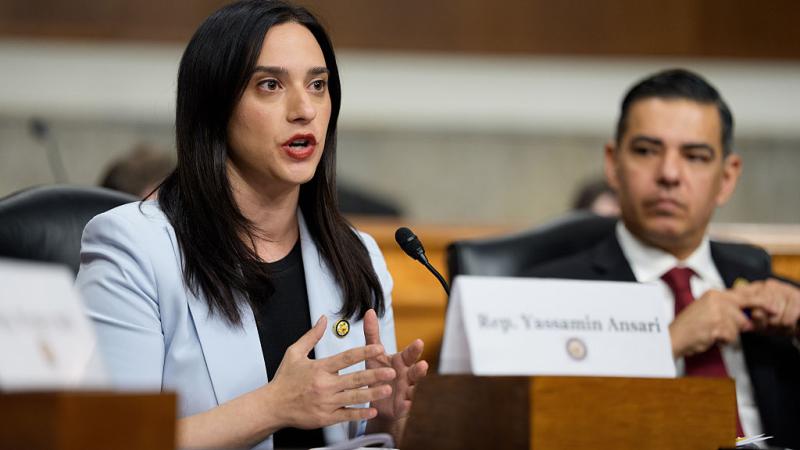Michigan’s 'independent' redistricting panel members face backlash over Democrat ties
state created a 13-member commission of four Democrats, four Republicans, and five independents to take politics out of redistricting.
In 2018, Michigan voters were fed up with in-power politicians drawing their own districts to protect incumbents. As a result, 61% of voters in the state approved a ballot proposal that established an independent citizen’s redistricting committee (MICRC).
But as new problems emerge, critics want answers.
Michigan voters passed the proposal with the understanding the MICRC would be a separate, independent body so no one could claim the Secretary of State or another politician controlled it. The state created a 13-member commission of four Democrats, four Republicans, and five independents. A majority of seven members – including two Democrats, two Republicans, and two independents – must agree to submit a proposed redistricting map that would be in effect until the next census in 2030.
However, at least two commission members claiming to be “independents” are Democrats, the Washington Free Beacon reported. The first, Anthony Eid, applied for the commission as an independent, stating that he does not "affiliate with either the Republican or Democratic Party." The publication's review of his social media presence shows Eid has supported members of the Democratic Party but not Republicans. He wrote he was "proud to live in a state that voted for Bernie Sanders in the primary" in 2016.
Additionally, Gongwer reported on Eid’s tweets that included rape jokes and derogatory comments about women.
A second commission member, Rebecca Szetela, applied as an independent but has contributed at least $225 to EMILY's List, Democratic politicians, and in May addressed the Progressive Democratic Women's Caucus of Muskegon County, the Beacon reported.
Michigan Independent Citizens Redistricting Commission spokesman Edward Woods III cited Michigan’s Constitution (pages 18-23) in a response to the Free Beacon article.
“The Constitution only requires the applicant to identify their affiliation,” Woods previously told The Center Square in an email. “In Michigan, it is either the Democrats, Republicans, or neither the Democrats nor Republicans. The Commission does not vet or choose candidates.”
Other problems abound. Despite holding regular meetings, the MICRC consistently fails to post meeting agendas and minutes to its website, which could violate the Open Meetings Act by not making the agenda public two hours before the meeting starts. MICRC added the agenda Wednesday after reporters complained on Twitter.
The MICRC is required to hold at least 10 public hearings to gather public input. More than 9,300 Michigan voters applied to serve on the committee.
Tori Sachs, executive director of the conservative Michigan Freedom Fund, called for both Szetela and Eid to resign.
“The staggering dishonesty of these commissioners is now tainting the hard, important work of the other 13 members,” Sachs said in a statement. “It's time they resign before they fully shatter voters' trust in this critical process as well."
Voters Not Politicians (VNP), the group that drove the redistricting model, claims to be a “nonpartisan grassroots organization,” but critics point out the petition drive was funded mostly by liberal nonprofit organizations.
About 67% of the money donated by VNP came from two organizations: the Texas-based Action Now Initiative gave $5.1 million and The Sixteen Thirty Fund, a Washington-based social welfare organization, contributed $6 million, according to the Michigan Campaign Finance Network (MCFN). Other donors included SEIU-United Healthcare Workers ($500,000); the Open Society Policy Center ($100,000); and the National Redistricting Action Fund ($250,000), an affiliate of the Democratic Party chaired by former Obama administration attorney general Eric Holder.
Opponents of the effort donated $50,000 through the nonprofit Fair Lines America to challenge the proposal.
Dave Waymire of Martin Waymire, a firm providing public relations to VNP, pushed back on criticism directed at the MICRC. He compared the commission to the old redistricting process in which “politicians were picking their voters, instead of having voters pick their politicians,” he told The Center Square in a phone interview.
Waymire noted two safeguards against partisanship via the MICRC: There must be agreement across parties and independents to make decisions; and the maps drawn must not “include relationships with political parties, incumbents, or political candidates,” the Constitution states. “Districts shall not provide a disproportionate advantage to any political party.”
The goal of the independent committee is to ensure the party in power doesn’t redraw political boundaries.
“It’s not a perfect process; nothing is a perfect process, but it certainly is far, far better than what we had in the past,” Waymire said.













